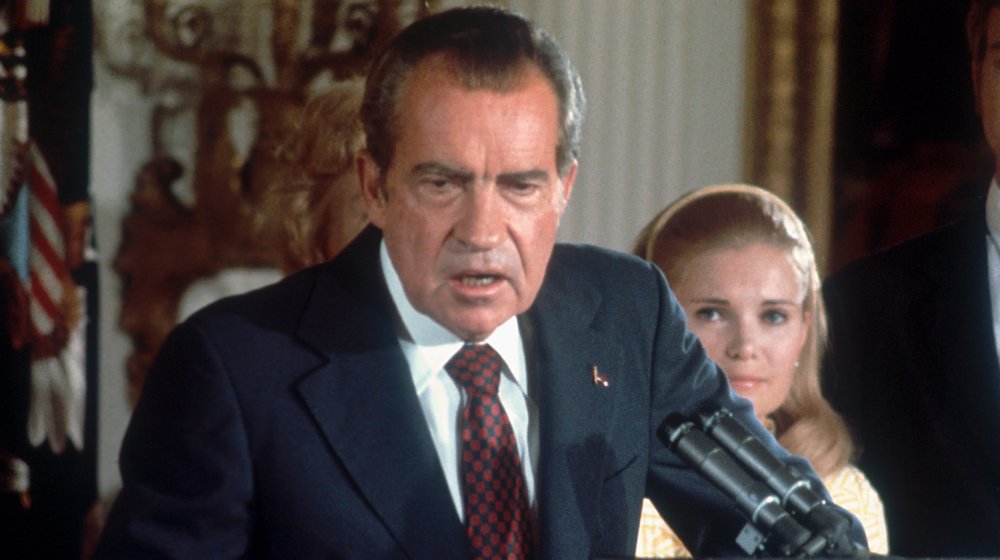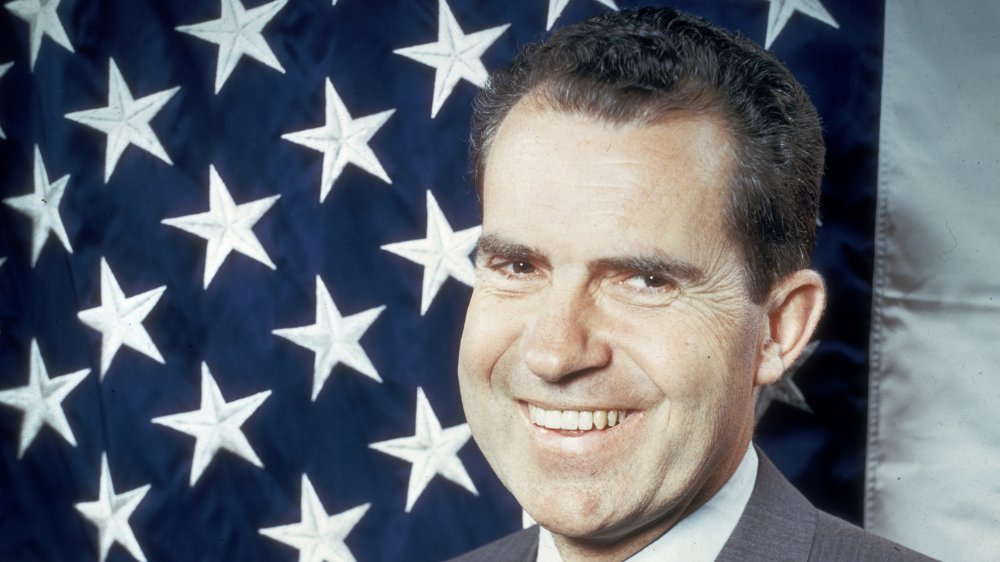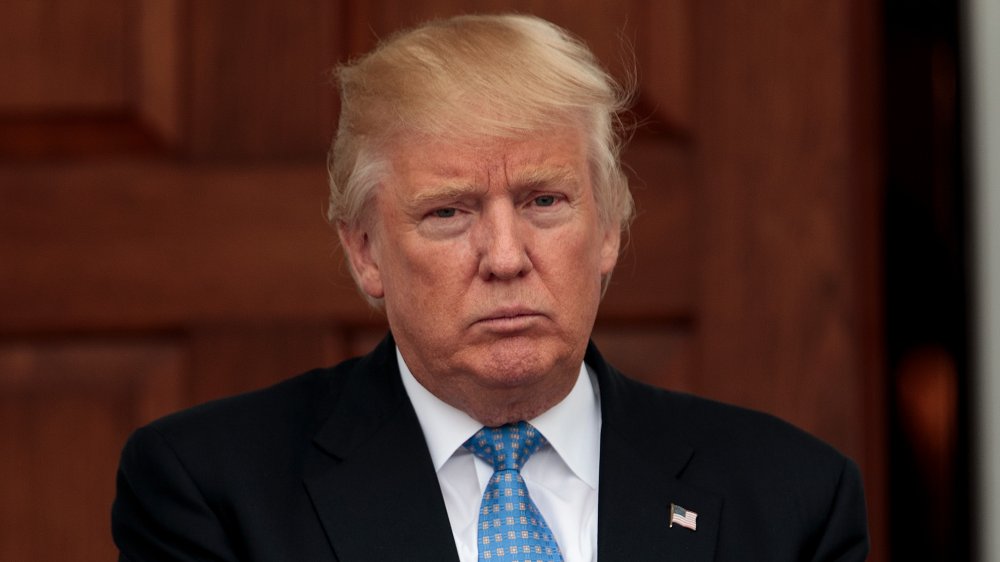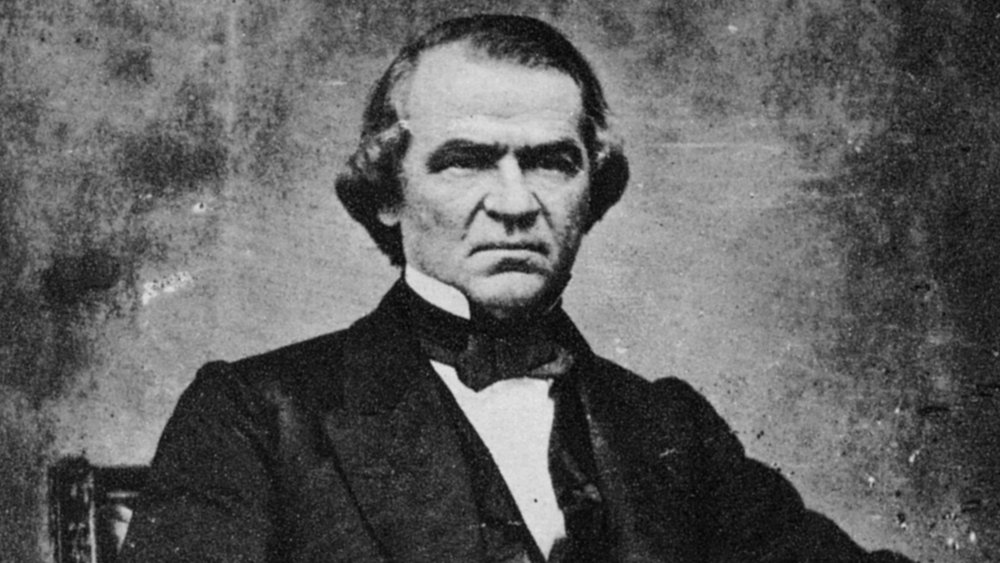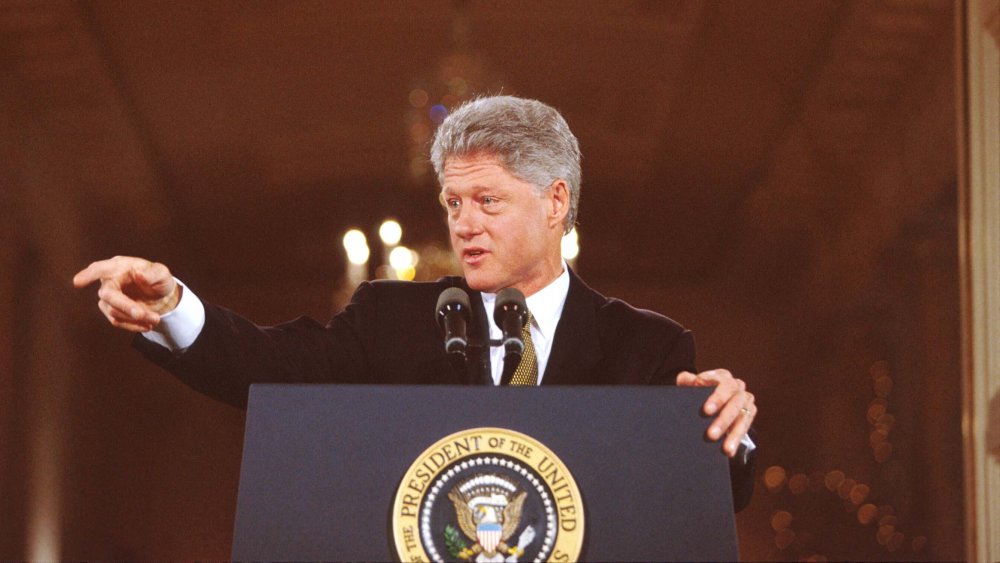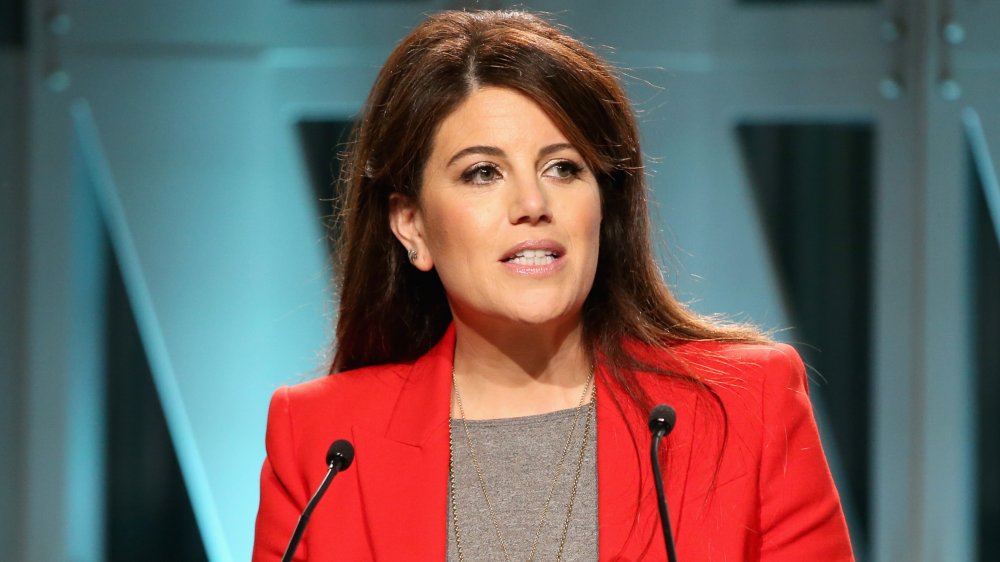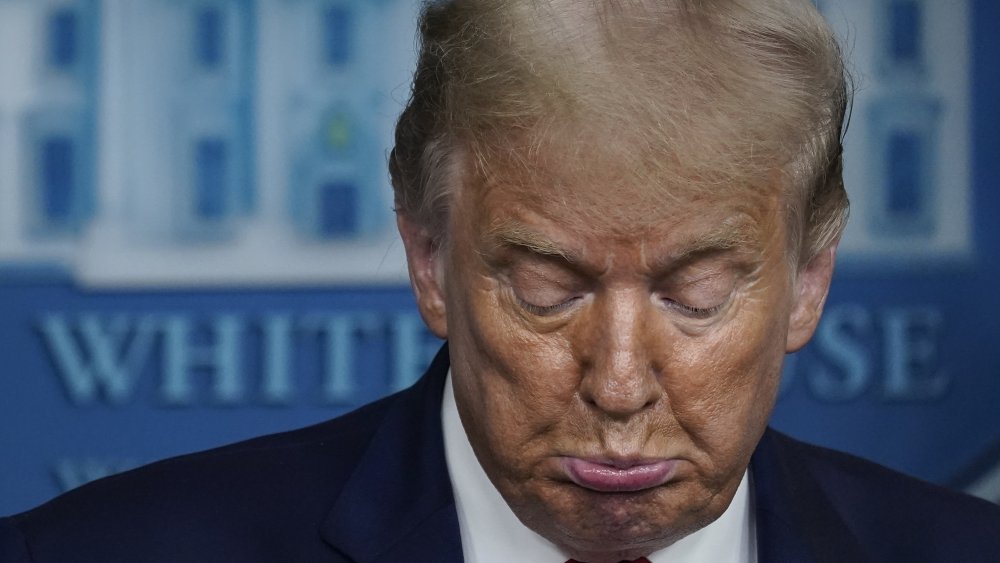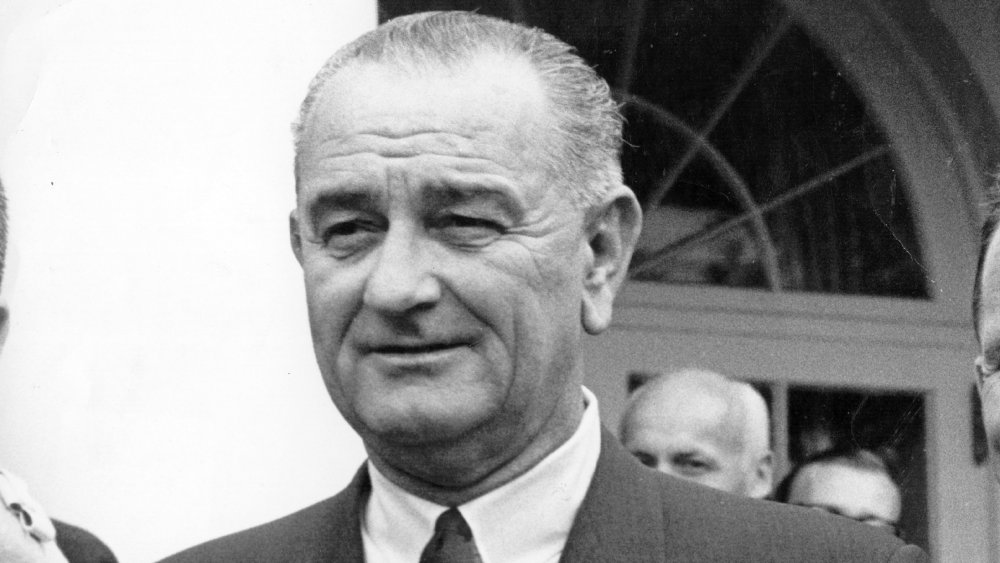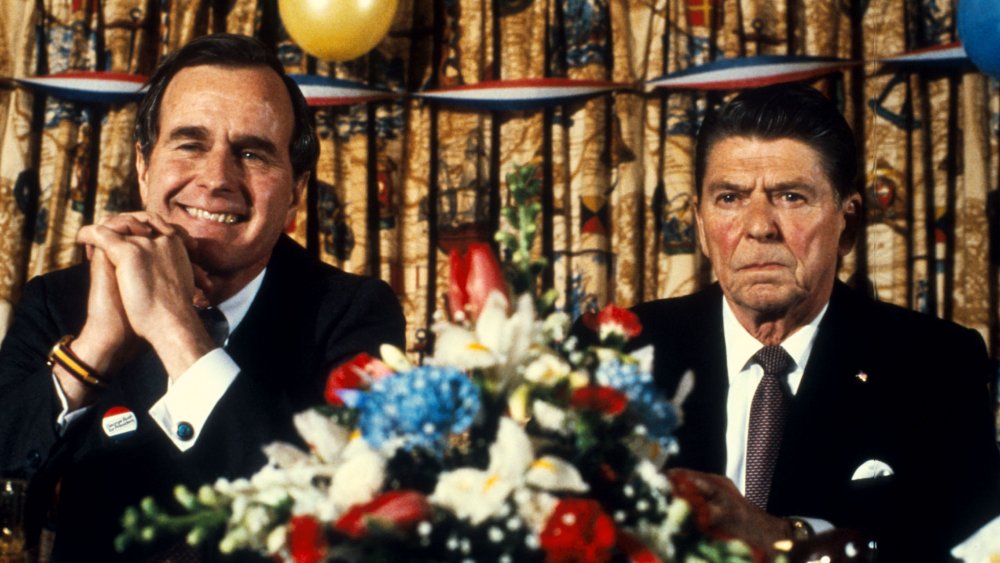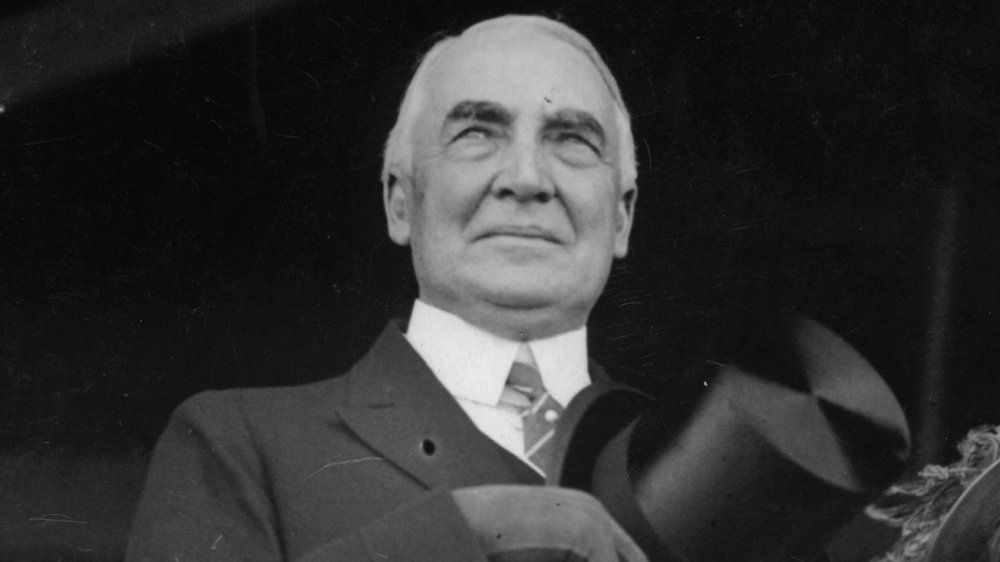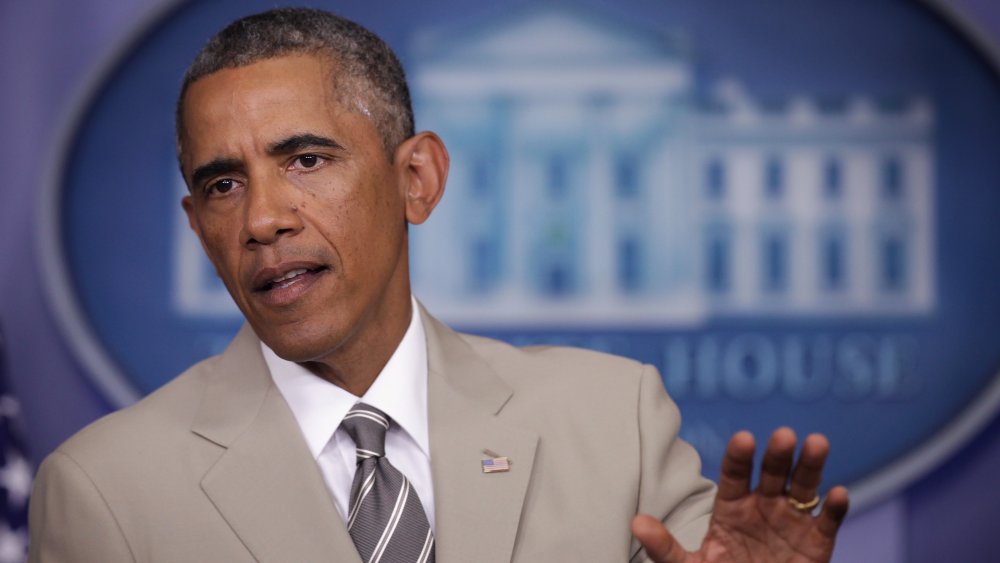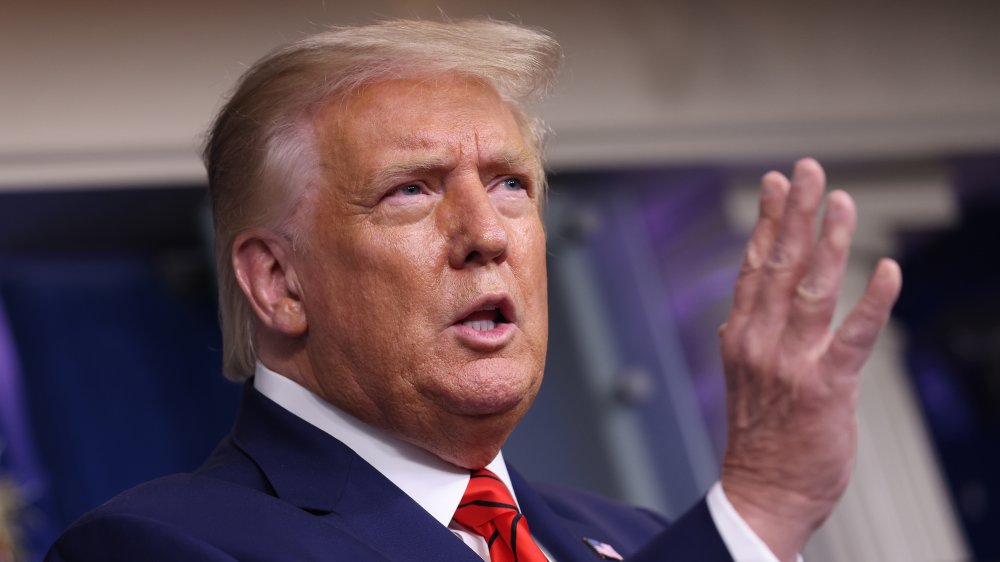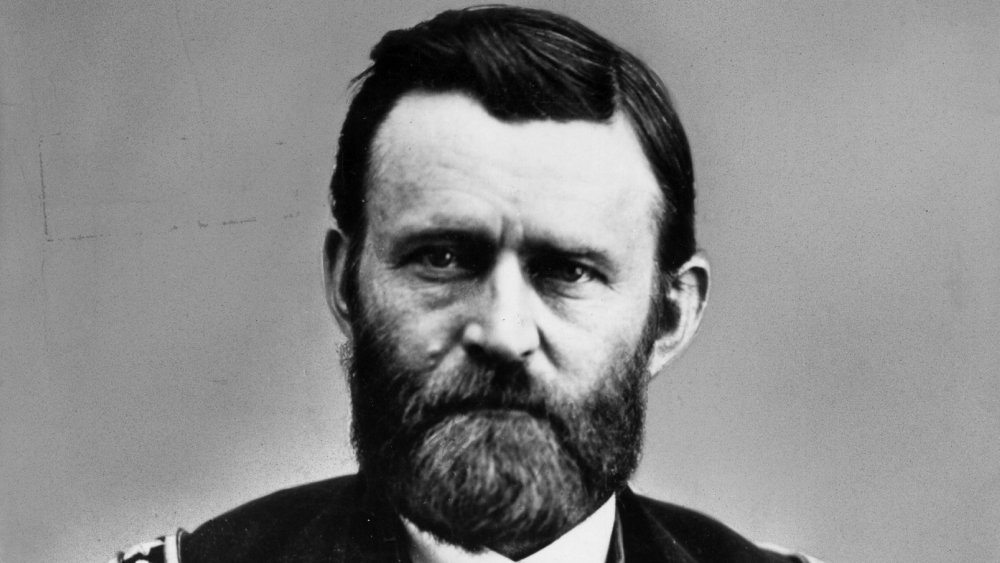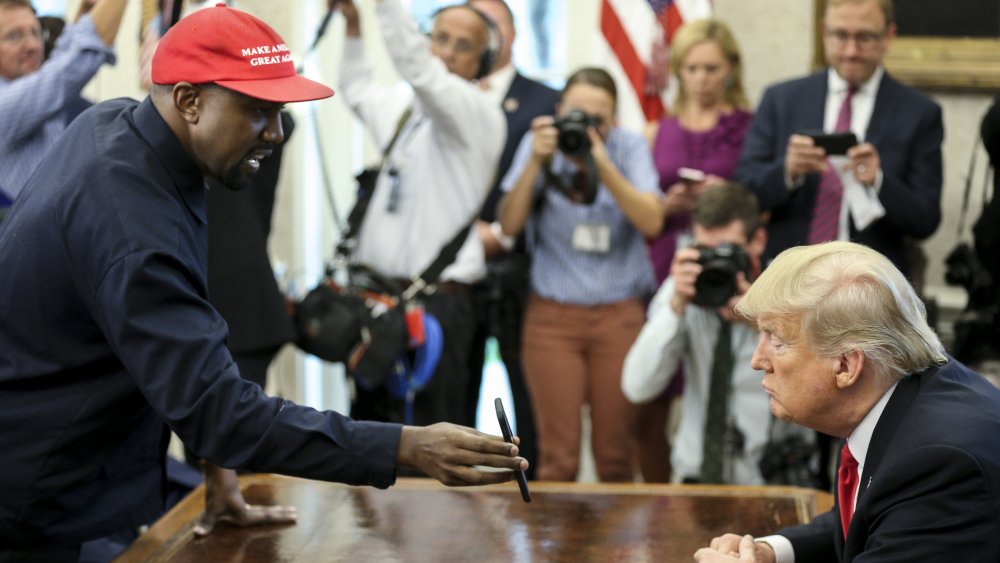Huge Scandals That Rocked The White House
Towards the end of the 18th century, when the US began to grow as a new nation, controversy started to appear around the highest levels of government. For all Hamilton fans, the Hamilton-Reynolds Affair comes to mind. And the number one seat in the government was no less immune from scandals. Even up through today, it's almost an unwritten clause that ascending to the presidency will increase the chances of a scandal. When someone's on top, it's inevitable people will try to pull them down. Or more importantly, with all the power, the person in office should be held accountable.
These scandals became so entertaining that they launched an entire genre of TV, political dramas. While the real-life events may be less extreme than those that transpire in say, Scandal, the incidents are no less surprising. Throughout US history on Pennsylvania Avenue, there have been scandals ranging from impeachment inquiries to fashion choices. What's the most shocking thing you remember coming out of the White House? While some administrations avoided major issues, others seemed to be in the news cycle every day.
What are the craziest stories you've seen about a US president? Brace yourself for the list of huge scandals that rocked the White House.
Richard Nixon and the Watergate tapes
On June 17, 1972, the Watergate complex in Washington D.C., would forever be associated with arguably the biggest scandal ever in American politics. On that fateful day, multiple men were arrested inside the Democratic National Committee office located within the Watergate complex. The men "had been caught wiretapping phones and stealing documents" in connection to President Richard Nixon's attempt at a second term (via History). In August of that year, Nixon "swore that his White House staff was not involved in the break-in" and the president won by a landslide in November.
Meanwhile, reporters at The Washington Post began digging deeper into the incident. The story is so incredible that it inspired the Academy Award Best Picture-winning film, Spotlight. Bob Woodward and Carl Bernstein began to uncover the president's role in the incident and, even more, his "aggressive steps to cover up the crimes." No one can forget Nixon's famous line, "I'm not a crook" as he maintained his innocence. As pressure mounted from the other branches of the government into the cover-up, Nixon shocked the nation when he resigned from office.
Donald Trump and his alleged ties to Russia
The fact that Donald Trump beat out Hillary Clinton in the 2016 presidential election was shocking enough to many Americans. But in a surprising turn of events, rumors of interference from abroad began to surface. Specifically, from Russia. As reported by BBC, US intelligence agencies concluded "that Russia was behind an effort to tip the scales of the US election against Hillary Clinton, with a state-authorized campaign of cyber attacks and fake news stories planted on social media."
While this fact alone threatened the democratic foundations of the United States, it also opened up a deeper investigation into the president. Robert Mueller, a former director of the Central Intelligence Agency, launched an investigation into "alleged collusion between Mr. Trump's 2016 presidential campaign team and Moscow." All along, the president maintained his innocence and called the investigation "the greatest political witch hunt in history."
In the end, a detailed report by Mueller and the team found there was no evidence of a conspiracy between Trump and Russia, "but it did lay out 10 instances where the president possibly obstructed justice." And many people were indicted by Mueller's special council, including four members of Trump's campaign team. The special team disbanded afterward, and Mueller even gave one final statement about his report, confirming that Trump "clearly did not commit a crime, we would have said so."
Andrew Johnson barely survived being voted out of office
An important clause in the US Constitution — the Impeachment Clause — gives "Congress the ability to remove from power an unfit officer who might otherwise be doing damage to the public good," as revealed by the Constitution Center. This ideally should go unused since a convicted official would be standing trial for "treason, bribery, or other high crimes and misdemeanors." But Andrew Johnson became the first president to see this process in action.
Johnson started in office as vice president to the legendary Abraham Lincoln. After Lincoln's assassination in 1865, Johnson became the next president. And this was all in the midst of the US Civil War, which ended in 1865. As a result, Johnson's main priority was to enact his "Reconstruction policy" for southern states that previously seceded (via History). Johnson, a Democrat, tried to replace Edwin M. Stanton, the current Secretary of War, with future president General Ulysses S. Grant. However, the Senate protested the decision, and Grant yielded the position back to Stanton.
In 1868, Johnson tried the same move again with hopes of General Lorenzo Thomas taking over for Stanton. The Republican-heavy Congress had enough and officially impeached president Johnson for "dismissing his secretary of war against the will of Congress," per BBC. The Senate barely saved Johnson from removal — "the two-thirds majority in the Senate was missed by just one vote."
Bill Clinton lied about having an affair
The only impeachment of a US President — Andrew Johnson in 1868 — was not even a memory for people in the 1990s, just a historical fact. But President Bill Clinton would unknowingly become the next president to face removal from office by Congress. In November of 1995, President Bill Clinton began an affair with an intern, Monica Lewinsky. The following year, "Lewinsky was transferred to the Pentagon. That summer, she first confided in Pentagon co-worker Linda Tripp about her sexual relationship with the president" (via History). Though the affair ended, Tripp and Lewinsky continued to discuss the affair. But unbeknownst to Lewinsky, Tripp secretly recorded their discussions. The story made the news, and Clinton proclaimed, "I did not have sexual relations with that woman, Ms. Lewinsky."
Lewinsky received full-immunity in exchange for testifying against the president's claim. Clinton reversed and admitted "that he had had an extramarital affair with Ms. Lewinsky." Clinton later reiterated these statements to the American public in a televised address to the nation. The Starr Report came out soon after, which "outlined a case for impeaching Clinton on 11 grounds, including perjury, obstruction of justice, witness-tampering, and abuse of power." As a result, the House of Representatives voted and impeached the president. The proceedings moved to the Senate, but the "president was acquitted on both articles of impeachment." The president apologized to Congress and the nation.
What is Monica Lewinsky's side of the story?
A west-coast native, the 21-year-old Monica Lewinsky moved to Washington D.C. in the summer of 1995. She was "one of about 1,000 unpaid interns taken on by the White House each year" and started in the Chief of Staff's office, per The Washington Post. For a brief time, Lewinsky "lived with her mother in a family apartment at the Watergate Hotel," the same complex that started the downfall of Richard Nixon. "Over the course of a year and a half, the president and Lewinsky had nearly a dozen sexual encounters in the White House," via History. "At the age of 22, I fell in love with my boss," Lewinsky revealed in a speech at TED2015. "At the age of 24, I learned the devastating consequences."
She admitted to making mistakes but talked about the unprecedented backlash she faced as a result. "I was branded as a tramp, tart, slut, whore, bimbo and, of course, 'that woman.'" she confessed. And sadly, this was the first popular case of "cancel culture" and cyberbullying. For the first time, the digital revolution let news travel instantly. As Lewinsky put it, "I was Patient Zero of losing a personal reputation on a global scale almost instantaneously."
Later, famous TV producer Ryan Murphy wanted to tell Lewinsky's underrepresented side of the story. He created the anthology series, American Crime Story, and one season, Impeachment, revolves around Lewinsky's tale — with her at the helm as producer.
A phone call that almost ruined Donald Trump
Two presidents before Donald Trump — Andrew Johnson and Bill Clinton — both faced removal from office through impeachment — but both men were acquitted by the Senate. Right before Christmas of 2019, the House of Representatives impeached President Trump. Would the third time be any different? To get to this point, a whistleblower complaint detailed a discussion between Trump and Volodymyr Zelensky — the president of Ukraine. As detailed by History, "Trump had threatened to withhold U.S. foreign aid money until Zelensky promised to investigate Hunter Biden, son of leading Democratic 2020 candidate Joe Biden, for suspicious dealings in Ukraine." In addition to withholding a reported $400 million of military aid "that had already been allocated by Congress," the president was accused of using an official White House meeting with Zelensky as a bargaining tool, per BBC. The House accused the president of abuse of his executive power for personal gain and of "obstructing Congress by refusing to cooperate with the congressional inquiry." On December 18th, the House impeached President Donald Trump.
The case moved to the Republican-majority Senate. The Republican defense claimed that: "Ukraine's president said he felt no pressure; The Ukrainians were unaware the aid was held back; US military aid was eventually released." And like the two other attempts in American history, the Senate acquitted President Trump.
Lyndon B. Johnson abandoned one of his closest friends
Vice President Lyndon B. Johnson became the 36th President of the United States as a result of one of the most tragic events in American history — President John F. Kennedy's assassination in 1963. And while in office, Johnson faced his share of criticism, most notably for increasing US involvement in the Vietnam War. But perhaps the biggest scandal to rock the White House involved the president's closest aide.
Just a few weeks before the 1964 election where Johnson sought his first outright election win, his aide Walter Jenkins faced interrogation. As summarized by Timeline, Jenkins was caught in a sting operation and arrested based on "morals charges" for homosexual sex acts. And a few days later, news broke that "Mr. Jenkins had been arrested on a similar charge in 1959 that had never been publicized," per The Washington Post. Johnson completely distanced himself from his close ally and a man he once called his "vice president in charge of everything."
Johnson focused on saving his reputation for the upcoming election, but his wife, Lady Bird Johnson, stood behind Jenkins. According to Timeline, she approached The Washington Post to defend Jenkins and his "dedicated service to his country." Reportedly, as a result of her statement, several "newspapers ran editorials that, while not condoning homosexuality, did advocate compassion for Jenkins."
An affair that tarnished the names of two different presidents
Prior to Ronald Reagan's seat at the top of the government, he was a Hollywood actor. And just like the movies, his time in the White House included plenty of drama. The biggest scandal of his time was called The Iran-Contra Affair. As summarized by History, this affair involved "a secret U.S. arms deal that traded missiles and other arms to free some Americans held hostage by terrorists in Lebanon." Even more, the funds from this deal were also allocated to support "armed conflict in Nicaragua."
Not only did the affair affect Reagan but also President George H.W. Bush. Bush was Reagan's vice president for eight years, and so rumors of his involvement transitioned into his time as president. Though both Reagan and Bush were never charged with crimes, six members in Reagan's administration were convicted of "perjury, lying to Congress or obstruction of justice," NPR summarized. Less than two months after losing to Bill Clinton in the 1992 presidential election, on Christmas Eve, Bush pardoned all six convicted men, including Caspar Weinberger, whose trial was set to begin 12 days later.
A scandal surfaced even after Warren Harding died in office
On a presidential trip to California, President Warren Harding suddenly passed away on August 2, 1923, after just two years in office. According to the Constitution Center, in recent years, "most historians accept that Harding, 57, died from a heart attack" in a San Francisco hotel room. The reason mystery surrounds the actual cause is because "there was no autopsy done on the body of the president, at his wife's request." Perhaps more surprisingly, scandalous reports came to light after this popular president passed away. One included "claims he had fathered an illegitimate daughter in the White House with his alleged mistress, Nan Britton." But the most famous scandal, The Teapot Dome, affected Harding's legacy and plagued his vice president, Calvin Coolidge, who became president after the death.
In a scheme to control lucrative oil reserves that sat on federal land in Wyoming, Harding's interior secretary broke the law. Albert Fall accepted bribes from various private oil companies and, in turn, awarded exclusive government contracts. The contracts most importantly contained "drilling rights to the Teapot Dome oil fields," US News summarized. As a result, Fall was convicted and "became the first former Cabinet member to go to prison."
How did Barack Obama's fashion decision lead to so much controversy?
Would you guess a White House scandal involved a fashion choice? Specifically, a custom-fitted tan suit for President Barack Obama. The khaki-colored suit in question was "specially fitted for Obama by Georges de Paris, the Washington tailor who had outfitted every president from Lyndon B. Johnson onward," The Washington Post recounted. In 2012, Obama revealed that his wardrobe was actually quite simple. "You'll see I wear only gray or blue suits," he told Vanity Fair. He cited "research that shows the simple act of making decisions degrades one's ability," so he could make more important decisions as president.
So, Obama made a splash when he appeared in the White House briefing room in neither blue nor gray but rather, beige. Time described the event as "tantamount to seeing a performer out of costume." And it wasn't just a partisan issue. A reporter for the authority on men's fashion, GQ, even called Obama's suit "sad" and "terrible."
The president leaned into the controversy and repeatedly joked about his style choice. As summarized by The Washington Post, Obama "joked at his final news conference in January 2017 that he had been 'sorely tempted' to wear a tan suit for the occasion."
Stormy weather during Donald Trump's presidency
Rumors of an affair between Donald Trump and adult film star Stormy Daniels — real name Stephanie Clifford — started in 2011, well before he became the 45th president. In an interview with In Touch, Clifford claimed that she and Trump allegedly slept together after meeting at a "charity golf tournament in Lake Tahoe." Though the event didn't cause a major scandal at the time of the article, a 2018 report by The Wall Street Journal caused shockwaves. According to the report, Michael Cohen, one of Trump's lawyers, "arranged a $130,000 payment" to Clifford "a month before the 2016 election as part of an agreement that precluded her from publicly discussing an alleged sexual encounter with Mr. Trump." This led to a lawsuit from Clifford about the rumored money to buy her silence and nondisclosure agreement to bury the incident.
As reported by BBC, the claims included "a cover-up, and others have raised questions about potentially illegal campaign payments." Trump denied the affair and countersued Clifford. Trump ended up admitting that "Cohen had paid off Ms. Daniels and was reimbursed."
Then in 2020, courts ordered President Trump to pay "$44,100 to cover her legal fees," The Washington Post reported. After the settlement, Clifford posted on Twitter, "Yup. Another win!"
Did Ulysses S. Grant have the most scandals of all?
The man on the front of the $50-dollar bill is President Ulysses S. Grant, the heroic Civil War general. But he also faced numerous controversies in office. In fact, his time in office was so bad that it led to the phrase "Grantism," meaning "incompetence and corruption," according to Libertarianism.org.
Grant's economic policy involved "using gold to buy dollars from citizens at a discount and replacing them with currency backed by gold," per PBS. "Two well-known scoundrels" successfully found an insider "to tip the schemers off when the government was ready to sell gold." Grant ultimately caught wind of the scammers, ordered a massive sale of gold, and the gold market crashed almost immediately, which earned the name "Black Friday."
The Whiskey Ring scandal came during Grant's second term. His Secretary of the Treasury Benjamin Bristow "began to investigate his own department and discovered a scheme by which distillers paid government officials to avoid paying the tax on whiskey." More than a million dollars were recuperated by the government as a result of the investigation, via Libertarianism.org.
Kanye West and the White House
Hurricane Katrina ravaged the southern United States in 2005 and became one of the worst natural disasters in American history. In the aftermath, a special celebrity telethon aired to raise funds for victims and begin the rebuilding process. Alongside Mike Myers, Kanye West asked for donations before going off script and shocking viewers. West declared on live TV, "George Bush doesn't care about black people." It remains one of the rapper's most infamous moments and deeply affected President George W. Bush. Years later, in Bush's memoir, Decision Points, he described the aftereffects of West's comments as the "worst moment" during his years in office and his "all-time low."
West made national news once again in 2018, but this time in support of the White House. He attended a White House lunch to show his support of President Trump, leading to outrage by many celebrities. But Trump came to West's defense, even in 2020, when the rapper announced he was running for president as an independent candidate.

